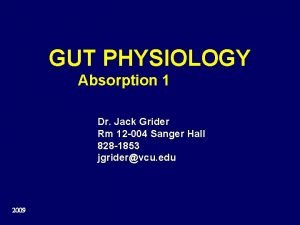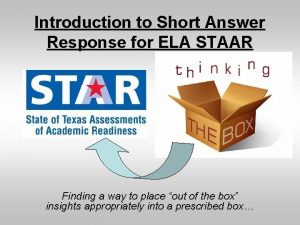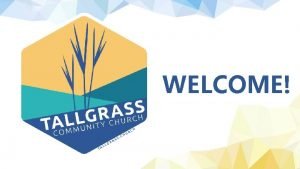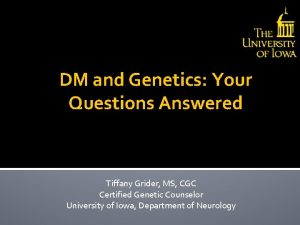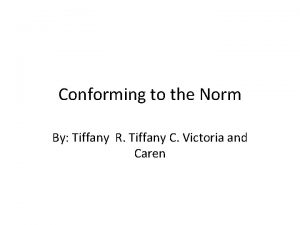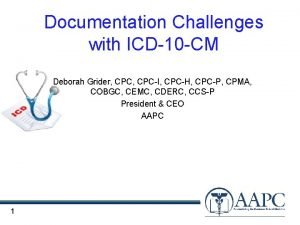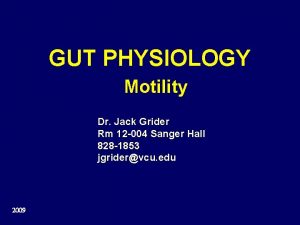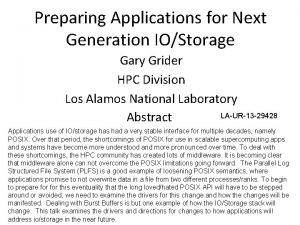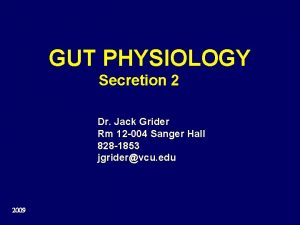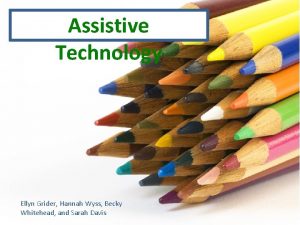DM and Genetics Your Questions Answered Tiffany Grider

















- Slides: 17

DM and Genetics: Your Questions Answered Tiffany Grider, MS, CGC Certified Genetic Counselor University of Iowa, Department of Neurology

Plan �Symptoms of Myotonic Dystrophy �Genetics of Myotonic Dystrophy type 1 �Genetics of Myotonic Dystrophy type 2 �Different types of genetic testing Diagnostic Predictive Prenatal

Myotonic Dystrophy Clinical hallmarks Muscle Weakness Myotonia Cataracts Cardiomyopathy Diabetes/Hormone problems Intellectual disabilities, LD Early frontal balding

Muscle Weakness Facts about Myotonic Dystrophy, MDA, Updated December 2009

Chromosomes Are Found In Each Cell Nucleus Cell Chromosomes

Genes (DNA) Comprise Each Chromosome Cell Chromosome DNA

Myotonic Dystrophy (MD) Myotonin-protein kinase DMPK Gene Inheritance • Autosomal dominant, maternal anticipation • Offspring of affected individual have 50% of inheriting the altered DMPK gene

Chromosome 19 Gene DMPK Gene …ATCCTGCTGCTG GTG CTC AAG. . . Amino Acids RNA

Myotonic Dystrophy …ATC CTG CTG CTG GTG CTC AAG. . . Amino Acids Abnormal RNA

Myotonic Dystrophy (MD) Number of CTG repeats Implications Normal <34 Not affected with MD; cannot pass on MD Intermediate 35 to 49 (premutation) Mildly affected 50 to ~150 Classic MD ~100 to ~1000 Not affected with MD; can expand when passed on Age of onset: 20 to 70 years Symptoms: Myotonia, cataracts Age of onset: 10 to 30 years Symptoms: Weakness, myotonia, cataracts, balding, cardiac involvement, others -/ Congenital MD > 2000 Age of onset: Birth to 10 years Symptoms: Infantile hypotonia, respiratory problems, mental retardation, classic signs in adults, others -/

Chromosome 3 Gene CNBP Gene …ATCCCTGCCTG GTG CTC AAG Amino Acids RNA

Myotonic Dystrophy ATC CCTGCCTGCCTGCCTG GTG CTC AAG. . . Amino Acids RNA

Myotonic Dystrophy Type 2 (DM 2) Number of CTG repeats Implications Normal <75 Not affected with MD; cannot pass on MD Abnormal 75 -11, 000 Affected with MD

https: //ib. bioninja. com. au/standard-level/topic-3 -genetics/34 -inheritance/mosaicism. html

Géraldine Sicot, Mário Gomes-Pereira. RNA toxicity in human disease and animal models: From the uncovering of a new mechanism to the development of promising therapies Volume 1832, Issue 9, September 2013, Pages 1390 -1409

Myotonic Dystrophy Presymptomatic Testing Series of appointments • Genetic counseling about MD • Neurological examination • Psychological evaluation • Blood draw for genetic testing • Results disclosure Ideally, diagnosis of MD is confirmed in an affected family member first

Small Molecule Treatments �Ms. Alicia Angelbello and Dr. Matt Disney at The Scripps Research Institute, Florida and their colleagues (at University of Florida and Iowa State) have developed a small molecule compound capable of cleaving DMPK expanded repeat RNA.
 Jack grider
Jack grider John 14 6 7
John 14 6 7 Short answer response staar
Short answer response staar I think he died for me
I think he died for me Matthew 16:16-19
Matthew 16:16-19 Procedures before telephoning
Procedures before telephoning Terrace farming ancient china
Terrace farming ancient china Jesus answered
Jesus answered Peter answered
Peter answered Lets warm up
Lets warm up Tiffany and co
Tiffany and co Give us your hungry your tired your poor
Give us your hungry your tired your poor In pairs answer the questions add your questions
In pairs answer the questions add your questions Rejoice dustin kensrue
Rejoice dustin kensrue Tiffany taylor georgia department of education
Tiffany taylor georgia department of education Reputation marketing tampa
Reputation marketing tampa E.m. tiffany ffa creed
E.m. tiffany ffa creed The ffa creed by e.m. tiffany
The ffa creed by e.m. tiffany
